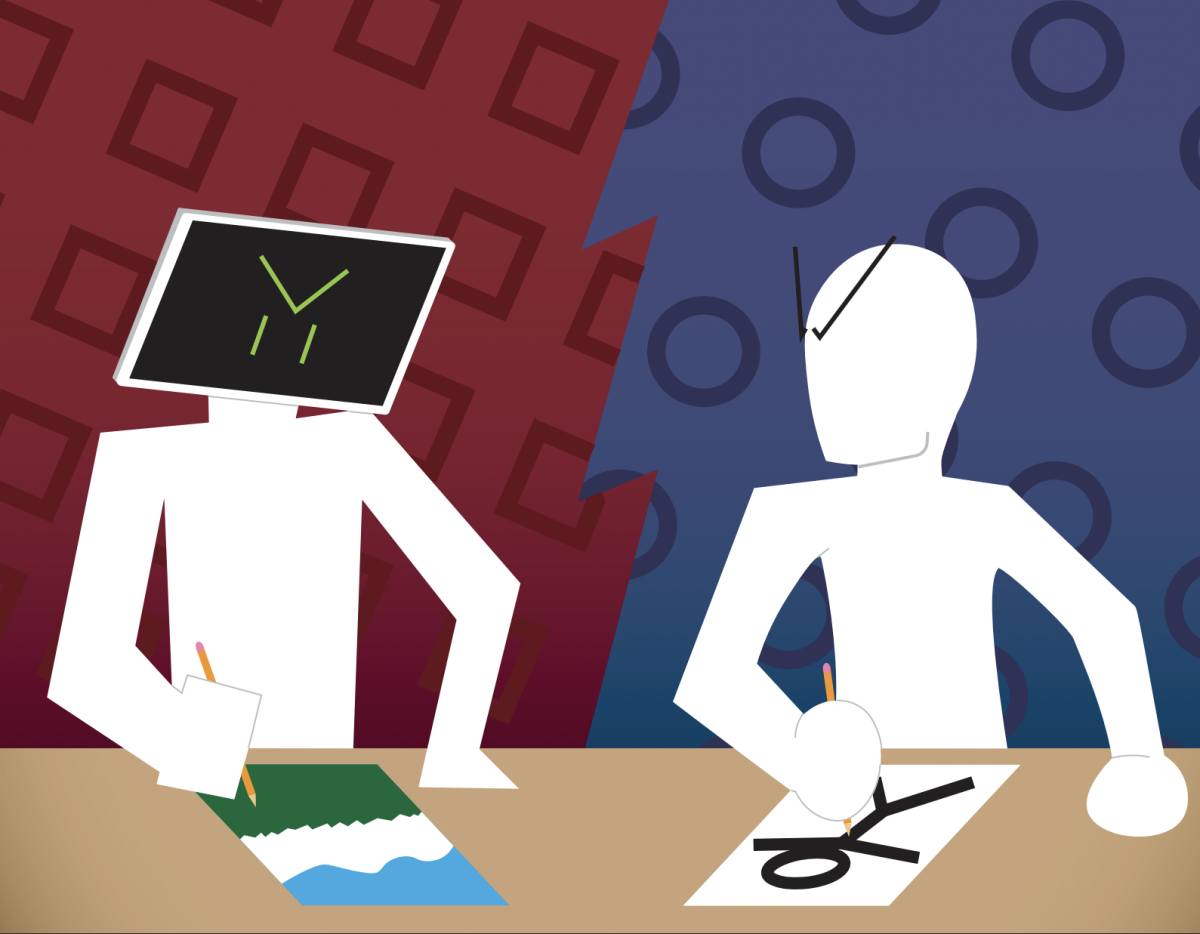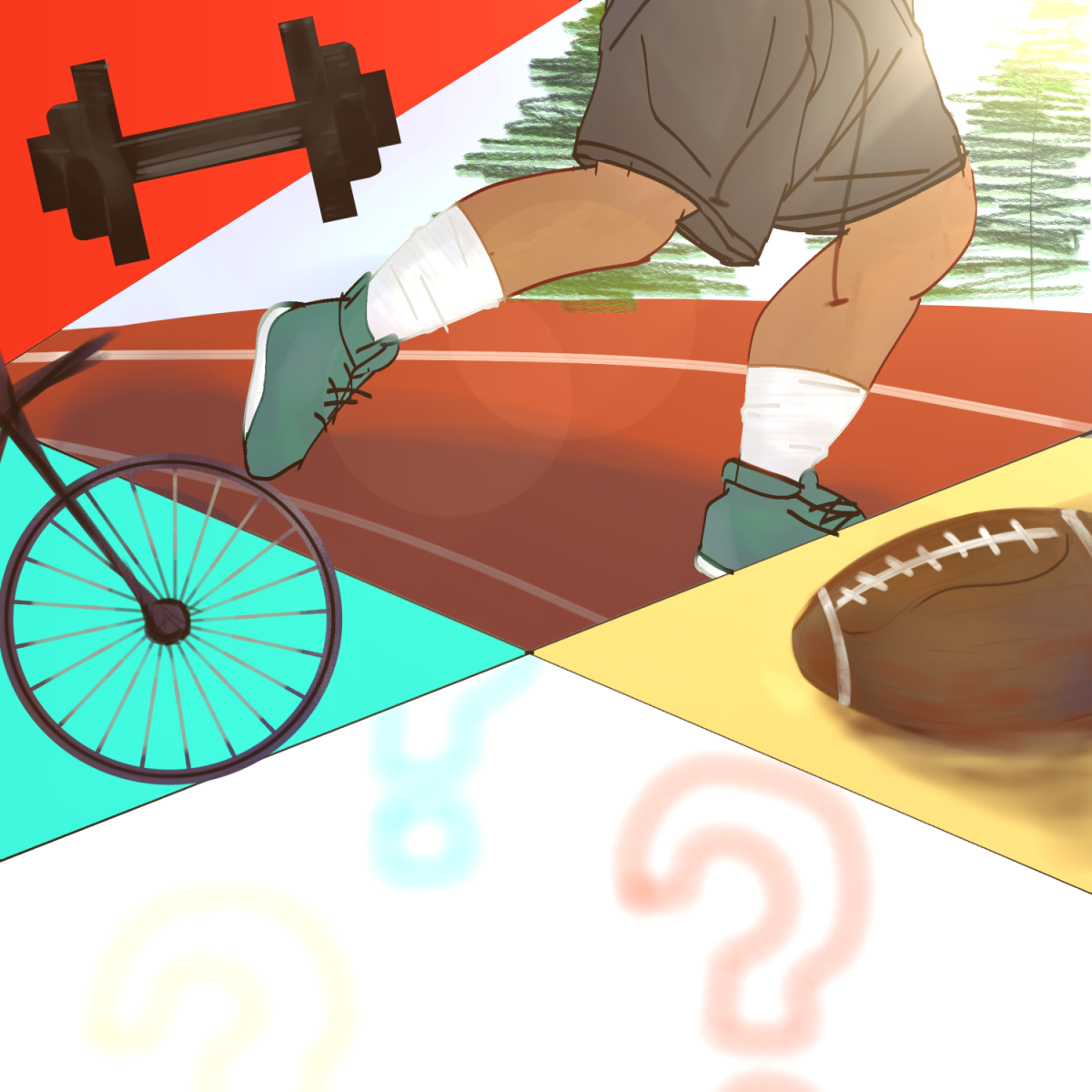On Nov. 29, Spotify Wrapped came out. The day that music users across the world had been anticipating had finally come. But with this momentous day comes fun conversations, discoveries, and puzzling social issues. Throughout the hallways that Wednesday and the days that followed, all I could hear was how people were embarrassed of their wrap because it was ‘basic.’ These comments struck me as strange because I did not understand how being basic could be interpreted as such a negative thing.
Spotify Wrapped is a marketing campaign created by the music streaming service Spotify, aimed to simplify users’ listening to five top songs, five top artists, and various other categories. Music is an integral part of people’s identities, and sharing what one listens to can be incredibly personal and a way to express your outlook on life. Listening to Taylor Swift can mean you are a hopeless romantic, while listening to Nicki Minaj can mean you live your life with confidence. However, categories like these can be damaging once negative connotations are applied to certain artists. While diehard fans of controversial artists may be questionable, reducing a person to their favorite artist is incredibly ignorant. Sophomore Alex Karpman states, “My top artist was Taylor Swift, and hearing people groan and tell me how lame it is to like her always makes me cringe. Liking Taylor Swift just means I like her. Just because other people do not, does not mean I can not.”
This introduces the concept of being ‘basic,’ something that almost everyone attempts to avoid around Spotify Wrapped season. The Dictionary defines basic as “someone or something as unoriginal, unexceptional, and mainstream.” In simple terms, being basic means just being average. Unfortunately, being ‘average’ is one of the most hurtful words to be described as, especially at a time where everyone strives to be unique. Being average implies a lack of worth; if you are not exceptional in every way, then you do not matter. So, with the excitement of Spotify Wrapped, anxiety arises as well. Freshman Avril Lee says, “I was so scared to see my Spotify stats because I knew people would ask, and I did not know how embarrassing my top artists and songs were.” After a random poll, students informed me that being basic meant listening to mainstream artists like Taylor Swift, Olivia Rodrigo, and Harry Styles. The whole point of mainstream music is its appeal to a wide audience. It is only natural to enjoy listening to ‘basic’ artists. However, this concept is often not comprehended by people because listening to mainstream music makes you just like everyone else which is equivalent to being basic.
In order to combat the judgment of peers, people choose to listen to music that marks them as unique. For example, the indie genre is what is most targeted in order to be perceived as special and interesting. Music Gateway defines indie as “music that’s produced by a DIY artist or on an independent label without the traditional resources of a major label.” While supporting indie artists is essential for the growth of the music industry, it is also important to evaluate why their music is significant. Is it because their music is good, or is it because no one knows them, which highlights you as someone unique and different? Junior Georgia Short says, “I know so many people who purposely avoided artists for their wrapped to be exactly how they wanted to be. It did not feel like people actually liked the music they listened to.” This concept may seem absurd, but it is the pure result of the need for social validation. Although Spotify is a way to connect with others, it is also another way to mock and judge others. Being special brings social validation, as people are naturally drawn to those who set themselves apart from others.
Spotify allows users to build their identity. While personality traits and psychical appearance are difficult to alter, things like Spotify are easy to manipulate. Therefore, the importance placed on Spotify is to share music and identify yourself. People like to categorize themselves and those around them because it allows for easier and more superficial judgement of others. This similar ideology is seen on TikTok as curated identities that have been identified as ‘aesthetics.’ And to fit into an aesthetic, all parts of yourself must be evaluated. Your hair, outfits, personality, and music taste all apply to your aesthetic. The concept of aesthetics appeals to young adults, who are also the main target for Spotify Wrapped. Irrational Labs states, “Humans have a natural inclination to see where they stand in the social hierarchy, and Spotify Wrapped ingeniously taps into this by turning personal listening statistics into a social spectacle.” This combination of solutions for curating an identity leads to the perfect consumer of Spotify.
The main reason I was shocked to hear about how people manipulated their Spotify stats was because it all seemed so trivial to me. Senior Asher Liddle states, “I can not imagine spending a whole year changing your statistics. But I empathize with those who do so.” However, understanding that it is more than just who a top artist can realize the bigger issue: social validation. Spotify wrapped may be used to identify yourself from people to treat yourself as special and unique. While social validation may be important, it is important to remember that the people that truly matter in their judgment of you are yourself. If you like Taylor Swift and Harry Styles, then seek out those same people or seek out people who like indie music, because at the end of the day, the right people will not characterize you as ‘basic’ for listening to what you do.






